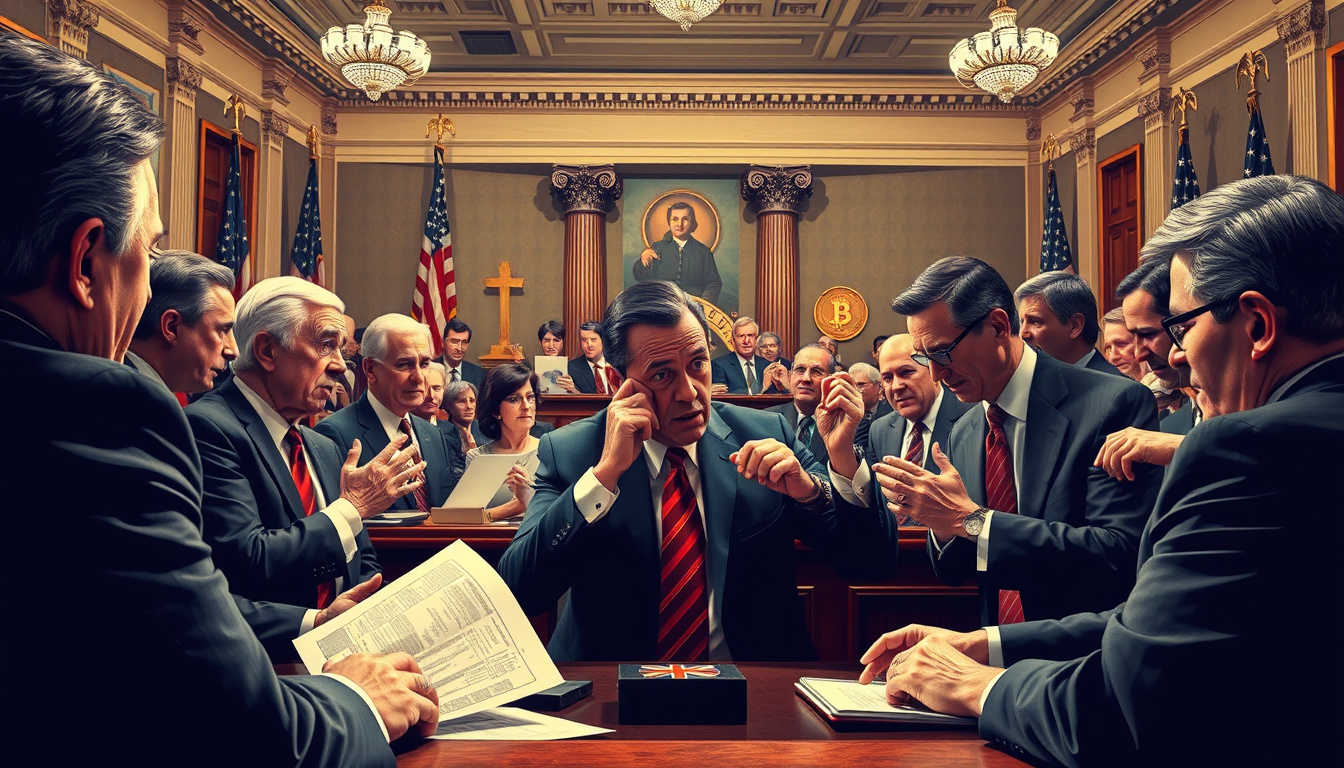The GENIUS Act, a pivotal piece of legislation aimed at regulating the burgeoning stablecoin market in the United States, finds itself at a crossroads.
Introduced in the Senate amidst a growing enthusiasm for cryptocurrency, this bill is designed to ensure financial stability by requiring stablecoins to maintain a 100% reserve backing with U.S.
dollars and other liquid assets.
However, recent developments have cast a shadow over the act's future, as nine Democratic senators have publicly voiced significant concerns regarding its current provisions.
This article delves into the details of the Democratic dissent, the looming hurdles for bipartisan support, and the broader implications of the GENIUS Act as it navigates through this complex political landscape.
Crypto News, Articles and Reports

Key Takeaways
- The GENIUS Act's future is uncertain due to bipartisan concerns raised by nine Democratic senators.
- Key issues include the need for enhanced anti-money laundering provisions and compliance accountability measures.
- Passing the legislation requires a bipartisan majority of 60 votes, complicating its path forward.
Democratic Dissent and Key Concerns
In recent developments concerning the GENIUS Act, a proposed piece of legislation aiming to regulate stablecoins, Democratic dissent has emerged, complicating its future.
Nine Democratic senators have expressed reservations about the bill's provisions, citing 'numerous issues' that must be addressed before they can lend their support.
Key areas of concern include the enhancement of anti-money laundering safeguards, the incorporation of national security measures, and the establishment of accountability protocols for those failing to meet the act's requirements.
Interestingly, among the dissenters are four senators who previously voted in favor of advancing the bill from committee, indicating a potential shift in the Democratic stance.
Republican Senator Bill Hagerty, a co-author of the legislation, has underscored the necessity of bipartisan collaboration to amend the bill, arguing that it should not become a solely Republican initiative.
The GENIUS Act requires stablecoins to maintain a 100% reserve backing with U.S.
dollars and easily liquid assets.
Additionally, it mandates regular public disclosures and audits aimed at ensuring transparency and stability within the cryptocurrency market.
As the Senate prepares for procedural votes, the concerns raised reflect deeper internal discussions among Democrats regarding the governance of cryptocurrencies, particularly in light of national security implications and past controversies involving presidential family connections to the crypto industry.
The path forward for the GENIUS Act now hinges on achieving a bipartisan majority of 60 votes, setting up a challenging and intricate political scenario for future negotiations.
Bipartisan Collaboration and Future of the GENIUS Act
The recent discussions surrounding the GENIUS Act highlight a pivotal moment in the evolving landscape of cryptocurrency regulation in the United States.
As senators continue to grapple with the complexities inherent in the digital asset space, the legislative process reveals a broader narrative of collaboration and contention.
While the act aims to introduce stringent measures for stablecoins, including a reservation requirement alongside regular audits, it faces roadblocks that could delay its implementation.
The push for stronger anti-money laundering protocols and robust national security features signifies a growing awareness among lawmakers about the potential risks associated with unregulated cryptocurrencies.
This is not merely a legislative issue; it underscores the urgency for a comprehensive framework that addresses both innovation in the financial sector and the protection of national interests.
The outcome will likely influence future legislation related to cryptocurrencies, setting a precedent for how digital assets are managed and regulated in the U.S.
By Wolfy Wealth - Empowering crypto investors since 2016
[highlight=transparent]⚡️Exclusive research [/highlight][highlight=transparent]Click [/highlight]Here
Disclosure: Authors may be crypto investors mentioned in this newsletter. Wolfy Wealth Crypto newsletter, does not represent an offer to trade securities or other financial instruments. Our analyses, information and investment strategies are for informational purposes only, in order to spread knowledge about the crypto market. Any investments in variable income may cause partial or total loss of the capital used. Therefore, the recipient of this newsletter should always develop their own analyses and investment strategies. In addition, any investment decisions should be based on the investor's risk profile.

